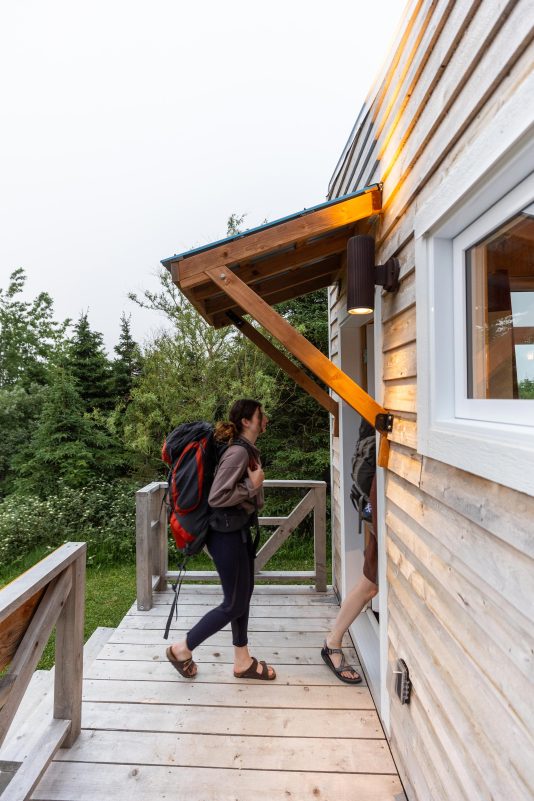


From the very first years of their lives, children form trust bonds through their relationships with their parents. The more welcoming, predictable and consistent in their support that parents are, the more secure their children will feel. On the flip side, when parents are going through psychological, familial and financial difficulties, their behaviour can become more erratic, which can cause their children to feel a sense of insecurity, decreasing their self-esteem.
Unfortunately, young people from disadvantaged backgrounds can have several sources of insecurity.
In fact, these young people often have anxious parents who are up against a number challenges (complicated financial situations, jobs that don’t make them feel valued, social discrimination, family break-ups, addictions, anxiety linked to language barriers, etc.). According to psychoeducator Stéphanie Deslauriers, these parents aren’t always able to deal with their children’s emotions or give them the sense of security they need to grow up.
To help these young people from disadvantaged backgrounds, it’s essential to empathize with their difficulties and surround them with a trusting, respectful and unconditionally accepting environment.
Travel can help teens to develop a greater sense of security by offering them a structured environment where they can actively take part in decisions thanks to the kindness and respect of the adults around them.
Why do young people from disadvantaged backgrounds have a lower sense of security?
Living with socio-economic difficulties often causes stress within families, who are also more often subjected to isolation and a lack of support. In fact, many families in precarious situations are run by single women. The many challenges faced by these women can negatively impact their relationships with their children and bring about greater instability and vulnerability within their homes (Gagné, Desbiens et Blouin, 2004).
Therefore, although mistreatment isn’t exclusively seen in disadvantaged environments, it’s true that children from these backgrounds are more at risk of negligence. According to Stéphanie Deslauriers, parents in precarious situations are less aware of their children’s development and are sometimes overly demanding, or have a tendency to pass on the mistreatment that they received themselves.
Unfortunately, these problems are sometimes perpetuated by resorting to drugs, which is more common in disadvantaged environments. According to Stéphanie Deslauriers, parents also tend to drink more to avoid their troubles and numb their angst. All this increases the child’s sense of insecurity as addictions tend to reduce parents’ receptiveness to their children, as well as their ability to interact with them appropriately, all the more if they’re in the grips of anxiety or depression.

However, growing up in a loving and stable environment is essential for teenagers who are in the middle of forming their identities. It has also been found that the stronger a child’s sense of security and self-esteem, the more independent they’ll be as a teen. According to Stéphanie Deslauriers, a teen who feels emotionally secure will be naturally more confident. They will also be more likely to express their emotions, have new experiences and build relationships.
It was also observed that teens from disadvantaged backgrounds suffer from greater insecurity in a school environment. As a result of performing worse at school, or sometimes being more agitated and less adept at forming positive relationships with others, these young people are more likely to have a negative experience with school staff and can become wary or defiant of them.
“With all the harshness in the world, let’s not add harsh parenting into the mix. Instead, whenever we can, let’s use an ever-appreciated humour (which goes just as much for teachers as it does parents).”
– Michel Fize, Antimanuel de l’adolescence
How can travel contribute to creating a sense of security among young people in precarious situations?
In adolescence, young people want, more than anything, to gain their autonomy and to discover themselves. Contrary to popular belief, teens do not need authority so much as they need points of reference, knowledge and information to find out who they really are. In summary, what they need most of all to become independent and responsible individuals is psychological and emotional security. .
According to Michel Fize, “Adolescence is no longer about limits and prohibitions imposed by authority. Those things are harmful and humiliating, because unless they can be negotiated, they prevent initiative.”
Taking a trip to a youth hostel with one’s class is therefore an opportunity to develop a more satisfying and harmonious relationship with the school environment, which strengthens teens’ feelings of security.
Put into an environment outside of school where they feel heard, understood and secure, young people receive recognition for their skills, encouragement and support from school staff members when facing new situations, sometimes for the first time. Reinforced in their positive behaviour, teens reconnect bit by bit with the adults around them and are able to blossom.
For example, the “Hors les murs” project, which was started in 2006, follows young people with psychological difficulties who go on a humanitarian trip during the course of their therapeutic treatment. It was seen that, as a result of this trip, teens displayed fewer problems with authority (50%) and had more fulfilling relationships with adults (54%).
The youth hostel trip also offers a unique opportunity to regain independence by taking part in different cultural and environmental projects during the stay. By taking part in decision-making, solving problems by themselves and collaborating with their peers, teens strengthen their individuality, and become more resilient and capable of making good choices for themselves.
Moreover, travel helps you broaden your horizons and acquire new skills. Be it learning to cook local dishes, trying out open-air activities such as hiking, or discovering the history and culture of an area, teenagers gain new skills and expertise during their trip. All these acquired skills and knowledge, different from what is traditionally found in a school environment (learning mindset, concentration, stillness, discipline, etc.) reinforce their feeling of competence and self-control, which creates a greater sense of internal security.

Finally, travel offers teens the opportunity to reconnect with nature, which can have a significant impact on their emotional well-being. Spending time in nature, be it exploring national parks, relaxing at the beach or walking in a forest, can help reduce young people’s stress, improve their mental health and strengthen their self-confidence. Teens learn how to appreciate nature’s beauty and how to feel safe in natural environments, which can have a positive impact on their overall sense of security.
According to Stéphanie Deslauriers, “Developing a feeling of internal security allows us to better self-regulate our emotions: a skill that helps us throughout our lives! Through travelling, unique experiences, exploration, cultural encounters and challenges, young people gradually build a sense of security within themselves.”
